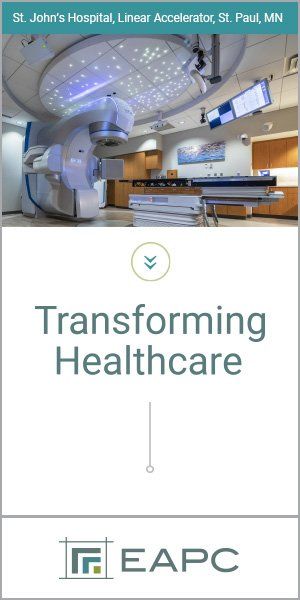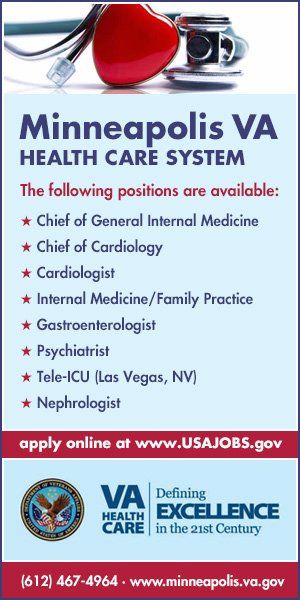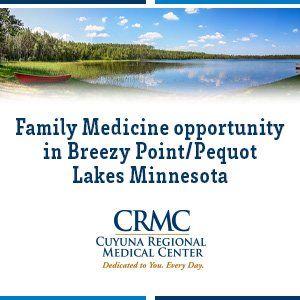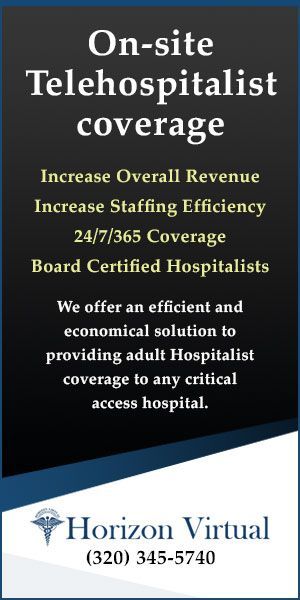Capsules
CIDRAP Launches New Public Health Information Hub
To address the accelerating rate of health care misinformation coming primarily from sources behind the recent federal funding cuts and restrictions around the dissemination of public-health related scientific research, the Center for Infectious Disease Research and Policy (CIDRAP) recently announced the launch of the CIDRAP Information Hub (CIH). CIDRAP is located within the University of Minnesota and funds to launch the new hub were provided through a generous grant from the Bentson Foundation, which since 1956 has actively supported higher education and public health.
Part of the CIDRAP mission has always focused on providing evidence-based research and agenda-free data on infectious disease threats that families, health professionals, organizations and the public can access. CIH will exponentially expand this work. “The Information Hub will serve as an online, completely free-of-charge clearinghouse of reliable news, podcasts, commentaries and authoritative updates on infectious diseases, outbreaks, vaccines, and other key public health information for the public, scientists and policymakers,” said Michael Osterholm, PhD, MPH, CIDRAP director.
“The Bentson Foundation has long supported the work of CIDRAP, believing that nonpartisan, research-based information regarding public health is a valuable asset to practitioners and the general public alike,” said Judi Dutcher, CEO of the Bentson Foundation. “We increased our financial support so people around the globe are guaranteed a reliable source of information that empowers them to make informed health care choices.” CIH will provide visitors with reliable, scientifically based strategies for infectious diseases response, with a strong focus on advancing public health. Specifically, CIH will enhance and add substantial new content to the information currently available on the CIDRAP website by including peer-reviewed updates, timely public health reports and analyses of relevant and reliable sources. CIH will also expand CIDRAP’s outreach and social media presence across different platforms to increase visibility of public health topics for the public and the scientific community.
“We thank the Bentson Foundation for making this incredible effort possible. We look forward to leveraging the expertise of a range of public health experts to provide the world with a one-stop shop of infectious disease information and advice,” said Osterholm.
HealthPartners Addresses Reduction in Hospitalizations
HealthPartners recently released updates from its new Advanced Care Primary Care (ACPC) Clinic. Located inside the Park Nicollet Specialty Center in St. Louis Park, it is designed to help patients avoid costly emergency department visits and hospital admissions though coordinating care for patients with complex needs who may be at risk of needing hospitalization. Initial feedback has been promising, showing a 60% reduction in avoidable ED visits among patients who were admitted last year.
“We believe health care should be simple, affordable and focused on helping people live their healthiest lives,” said HealthPartners CEO Andrea Walsh. “ACPC is one of the ways we’re doing that – delivering a value-based care solution where quality, affordability and experience come together to make a meaningful difference for those we serve.”
The clinic brings together a team of experts from many specialties to support the patient’s entire care journey. Each day, the care team reviews recent visits and prepares for upcoming ones. If a patient goes to the ED or is hospitalized, the team follows up quickly to understand why and provides the right next steps to support the patient. Patients are referred to the clinic by their primary care clinicians and often have existing health conditions or other factors, such as inadequate social support or food insecurity, that can lead to more serious health issues. Schedulers help patients set up appointments, and clinic-support teams resolve issues that may prevent a visit. Video visits and telephonic support also help ensure easy access to care.
Care is coordinated across settings and may include primary and specialty care, home care, pharmacy, palliative care, care management and coordination, social work and behavioral health. Enhanced care coordination includes support for transferring patients between care settings. The team also works with a patient’s health plan care coordinator to ensure they receive all eligible benefits and services.
“Our collaborative team focuses care on the whole person and thinks creatively about how to meet their needs,” ACPC Medical Director Dan Albright, MD, said. “Every connection is a chance to remove a barrier to care and close a gap.” Access to the clinic is available through a wide range of insurance options.
AMA Addresses Latest Federal Public Health Threats
In response to statements from U.S. Health and Human Services Secretary Robert F. Kennedy Jr. that he intends to remove all 16 members of the U.S. Preventive Services Task Force (USPSTF) because they promote a too “woke” agenda, the American Medical Association (AMA) issued a statement expressing deep concern. In a recent letter to Kennedy they stated. “USPSTF plays a critical, non-partisan role in guiding physicians’ efforts to prevent disease and improve the health of patients by helping to ensure access to evidence-based clinical preventive services.”
USPSTF makes recommendations that dictate coverage policies for health insurers nationwide that include access without cost-sharing to services such as screenings for colon, breast, and lung cancer; screenings for anxiety and depression in children; and screenings and preventive services for cardiovascular disease. USPSTF members serve on a volunteer basis, are selected through an open, public nomination process and are nationally recognized experts in primary care, prevention and evidence-based medicine. Established in 1984, the USPSTF plays an essential role in making evidence-based recommendations for clinical prevention of disease.
Beyond the allegation that USPSTF promotes a “woke” agenda, HHS had nothing more to say of the decision to remove the members than “no final decision has been made on how USPSTF can better support the HHS mandate to Make America Healthy Again.” A recent Supreme Court ruling has given Kennedy the authority to make these decisions.
The AMA letter concluded, “The most important role physicians play is improving the health of patients. Given the essential role USPSTF members play in weighing the benefits and harms of preventive services such as screenings, behavioral counseling, and preventive medications, and making evidence-based recommendations for implementation in primary care settings, we urge you to keep the previously appointed USPSTF members and continue the task force’s regular meeting schedule to ensure recommendations are put forth, updated, and disseminated without delay.”
Allina Announces Four Clinic Closures
In a recent statement, Allina Health announced that effective November 1, 2025, it would be closing its clinics in Inver Grove Heights, Maplewood, downtown Minneapolis and Oakdale. The health system cited underutilized clinic space and a need to better align its resources with patient care models that continue to shift away from traditional in-person visits. “This decision balances maintaining access to care with more efficient use of space and resources,” the statement said. “We are taking steps to prepare for the future, where care models driven by patient preferences will continue to evolve… and finances of nonprofit health care systems will be even more challenged.” Reacting to Allina claims that fewer than 150 employees would be affected, union officials expressed alarm, having recently organized a first-ever physician picket protesting labor policies.
Allina noted, “Care team members will be provided with transition resources, and can apply for other positions that they are qualified for and interested in within Allina Health.” The system further stated it will assist affected patients in transitioning their care to other locations and will provide information on provider availability, new clinic options and further updates in the coming months.
In somewhat related news, Allina Health closed its Kidney Transplant and Living Kidney Donor Program at Abbott Northwestern Hospital on June 27. An Allina spokesperson issued the following statement: “Allina Health has made the difficult decision to close the Kidney Transplant and Living Kidney Donor Program at Abbott Northwestern Hospital. This decision was made after careful consideration of our ability to fully staff the program. We will continue to care for patients who have recently had a kidney transplant, and we will continue to offer a robust variety of expert nephrology services.”
It is also of note that North Memorial is closing its clinic on Nicollet Mall in Minneapolis this summer. With over 140,000 Minnesotans losing their Medicaid benefits, and great uncertainty around other health care funding sources, these kinds of responses may not be unexpected. The Allina statement addressing the clinic closings concluded, “We thank our patients who have entrusted us with their care at these locations.”
St. Joseph’s in Brainerd Receives 5-Star CMS Rating
The Centers for Medicare and Medicaid Services (CMS) recently released its 2025 ratings for health care facilities, and Essentia Health-St. Joseph’s Medical Center in Brainerd has received the highest rating possible. For the first time ever, St. Joseph’s Medical Center has earned a five-star rating, placing it in the top 10% of the more than 4,600 hospitals evaluated by CMS nationwide. The score is based on a five-star scale, with four stars signifying a better-than-average performance compared to similar health care facilities. The ratings are based on how well a hospital performs across different areas of quality, such as the patient experience, providing timely and effective care, readmission rates, mortality and safety. CMS first publicly reported data on hospital quality measures on a website called Hospital Compare, a public-private collaboration with the Hospital Quality Alliance (HQA) that began in 2002. Over the years the measurement and reporting standards have continued to evolve and improve. They currently include information on:
- Whether a health care provider gives care based on guidelines and standards of care and if the treatment gives the best results for most patients with a particular condition.
- Outcome measures designed to reflect the results of care, rather than whether or not a specific treatment or intervention was performed.
- Patient experience, measured by a national, standardized survey of hospital patients about their experiences during a recent inpatient hospital stay.
- Imaging efficiency patterns, care transitions, Emergency Department (ED) throughput efficiency, care coordination and patient safety.
Only data from Medicare-certified hospitals are included on Care Compare.
“Earning a five-star rating is an incredible honor that fills us with gratitude,” said Todd Defreece, senior vice president of regional operations at Essentia. “This recognition reflects the outstanding talent, compassion and unwavering commitment of our providers and staff, who continually strive to deliver top-tier care to our patients in the Brainerd Lakes region. It reinforces our dedication to excellence and inspires us to keep raising the bar for the health and well-being of our community.”
Stratis Health Awarded CMS 13th Scope of Work Project
Stratis Health, a member of the Superior Health Quality Alliance (Superior Health), has recently been recognized as part of the Centers for Medicare & Medicaid Services (CMS) 13th Scope of Work (SOW) award. This award affirms Superior Health and Stratis Health as trusted national leaders in health care quality improvement through their work as a Quality Innovation Network - Quality Improvement Organization (QIN-QIO). As part of this award, Superior Health will now cover 14 states and two territories, supporting health care organizations that serve Medicare beneficiaries across an expanded Great Lakes Region and a newly awarded Northeast Region. The five-year contracts run through May 27, 2030.
CMS selected Superior Health for its strong track record of delivering meaningful results — including helping avoid nearly 270,000 harms, achieving a 21% reduction in readmissions and delivering more than $1 billion in value over the past five years. Superior Health bridges the gap between CMS goals and local health care needs: delivering measurable results through person-centered, data-driven solutions. Through this new contract, Superior Health will continue providing no-cost technical assistance and leading community-driven quality improvement initiatives in hospitals, clinics and long-term care settings.
“This is a pivotal moment for our alliance,” said Tania Daniels, CEO of Superior Health. “CMS’s decision recognizes our proven ability to deliver results and build trusted relationships across care settings. We are honored to extend our support to even more providers and communities.”
What this means for Minnesota and our region is that Stratis Health will support efforts to:
Improve patient outcomes and reduce harm
Strengthen care coordination and reduce readmissions.
Advance health equity and data-driven care.
Provide hands-on technical assistance and learning opportunities.
“Stratis Health is excited to continue and expand our longstanding service as a Medicare QIN-QIO, improving the health and care of older adults as a founding member of Superior Health Quality Alliance,” said Jennifer Lundblad, president and CEO.
MORE STORIES IN THIS ISSUE
cover story one
Artificial Intelligence in Medical Practice: Something is finally working
By Ryan McFarland, MD
cover story two
Cancer Care in 2025: Where we came from, where we are going































